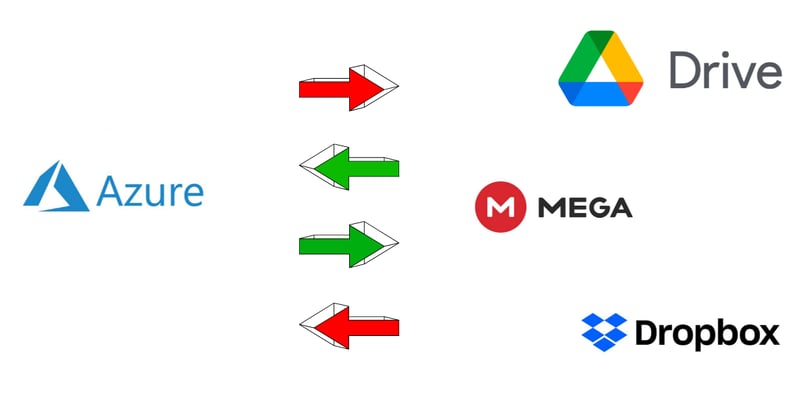Microsoft Azure: Comprehensive Cloud Computing Platform
Discover Microsoft Azure, a leading cloud computing platform offering IaaS, PaaS, and SaaS. Learn about its global infrastructure, key features, and how it compares to AWS and GCP in the competitive cloud market.
ENGLISHEDUCATION


Overview of Microsoft Azure and Its Comparison to Other Cloud Platforms
Microsoft Azure is a comprehensive cloud computing platform providing Infrastructure as a Service (IaaS), Platform as a Service (PaaS), and Software as a Service (SaaS). It enables organizations to deploy, manage, and build applications using its robust global infrastructure. Initially launched as Windows Azure in 2010, it was rebranded to Microsoft Azure to reflect its expanded services beyond the Windows ecosystem.
Azure competes with other major cloud platforms, primarily Amazon Web Services (AWS) and Google Cloud Platform (GCP), and serves as the second-largest player in the cloud market after AWS. Below, we explore its key features, unique advantages, and comparisons with AWS and GCP.
Key Features of Microsoft Azure
1. Comprehensive Service Portfolio:
Offers over 200 services across compute, storage, networking, AI, machine learning, IoT, and DevOps. Examples include Azure Virtual Machines, Azure Kubernetes Service, and Azure DevOps.
2. Global Infrastructure:
Azure operates in 60+ regions globally, providing unparalleled scalability and redundancy for data storage and application hosting.
3. Hybrid and Multi-Cloud Support:
Azure excels in hybrid cloud solutions, integrating on-premises infrastructure with the cloud using tools like Azure Arc and Azure Stack.
4. Seamless Integration with Microsoft Products:
Azure integrates naturally with other Microsoft offerings like Office 365, Dynamics 365, and Visual Studio, making it a preferred choice for enterprises heavily invested in the Microsoft ecosystem.
5. Security and Compliance:
Offers robust data protection and compliance features, supporting over 90 compliance certifications, making it suitable for highly regulated industries like healthcare and finance.
Advantages of Microsoft Azure
Cost Efficiency: Azure's pay-as-you-go model and discounts for existing Microsoft customers make it cost-effective compared to competitors like AWS.
Scalability: Its infrastructure supports auto-scaling to handle fluctuating workloads, catering to businesses of all sizes.
Developer-Friendly: Supports multiple programming languages, frameworks, and tools, allowing flexibility in application development.
Comparison with AWS and Google Cloud Platform
Market Presence and Ecosystem:
AWS leads the market with the most services and longest operational history.
Azure capitalizes on its strong integration with Microsoft's enterprise products.
GCP emphasizes cutting-edge AI and machine learning capabilities.
Pricing:
Azure's pricing is competitive, with significant savings for Windows Server and SQL Server customers.
GCP often offers the most affordable entry-level pricing.
AWS has the broadest pricing options but can be costlier for certain use cases.
Specialized Services:
AWS: Known for extensive services and robust reliability, particularly for large-scale workloads.
Azure: Excels in hybrid environments and enterprise applications due to seamless Microsoft integration.
GCP: Excels in containerized workloads and advanced AI.
Use Cases and Notable Clients
Microsoft Azure powers critical operations for businesses like Unilever, HP, and KPMG. Its use cases include:
Application development and testing.
Data storage and analytics.
AI and machine learning deployments.
Hybrid cloud implementations.
Downsides of Azure
Complexity in managing large-scale deployments.
Slightly fewer service options compared to AWS.
Dependence on the Microsoft ecosystem may not appeal to all businesses.
Conclusion
Microsoft Azure stands out for its versatility, enterprise-friendly features, and robust integration with the Microsoft ecosystem. It remains a strong contender against AWS and GCP, offering unique advantages for businesses seeking hybrid cloud solutions or deep integration with existing Microsoft products. However, the choice of a cloud platform depends on specific business needs, application workloads, and budget considerations.

